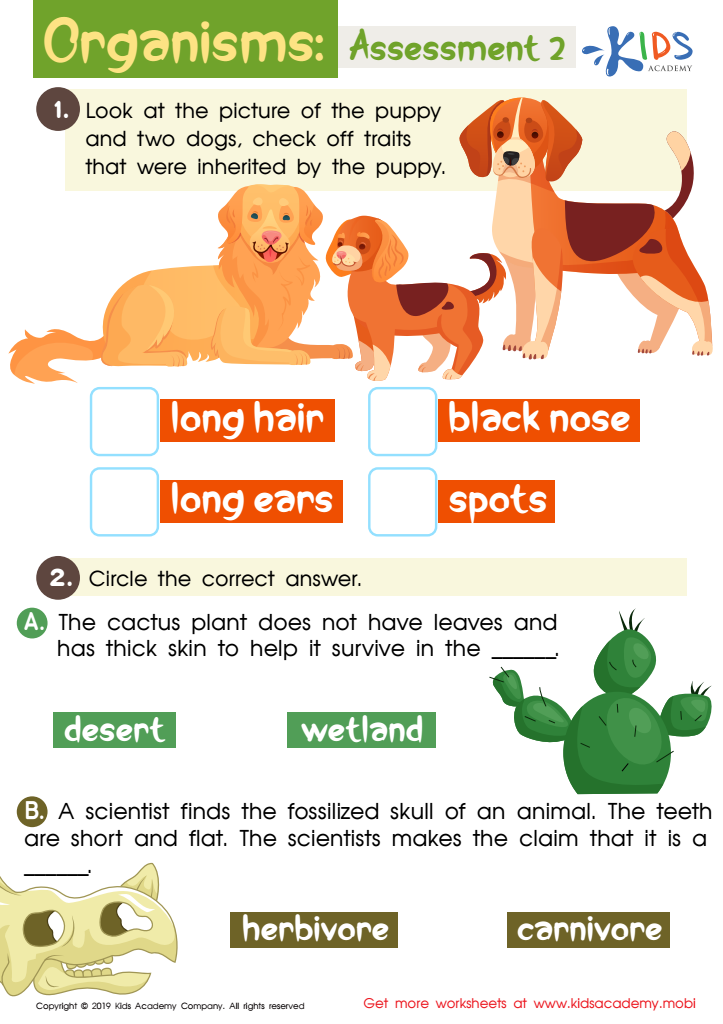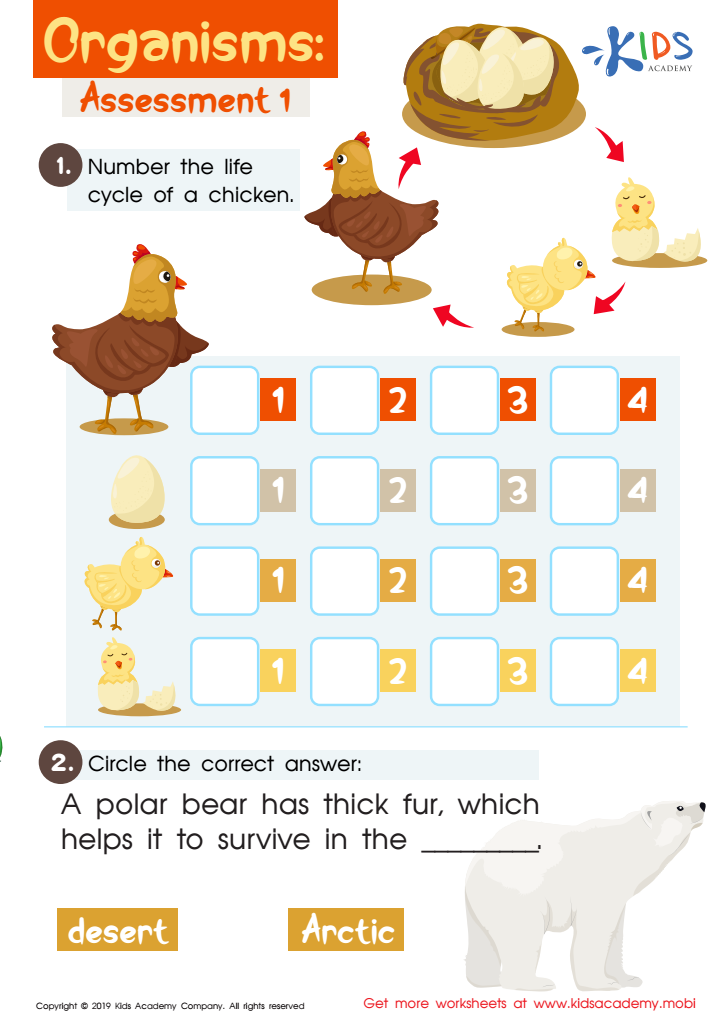Our Planet and Environment worksheets activities for Ages 4-8
5 filtered results
-
From - To
Discover our engaging "Our Planet and Environment" worksheets designed for children aged 4-8! These fun and interactive activities encourage young learners to explore the wonders of our planet and the importance of environmental care. With vibrant illustrations and age-appropriate questions, kids will enjoy learning about ecosystems, wildlife, recycling, and nature preservation. Perfect for classrooms or home education, our worksheets promote creativity and critical thinking while fostering a sense of responsibility toward the environment. Dive into a world of learning that inspires curiosity and nurtures young environmentalists! Access our free printable resources and spark your child’s love for the Earth today!


Animals and Plants: Assessment 2 Worksheet


Animals and Plants: Assessment 1 Worksheet


Organisms: Assessment 2 Worksheet


Organisms: Assessment 1 Worksheet


Ecosystems: Assessment 1 Worksheet
Parents and teachers should prioritize Our Planet and Environment activities for children ages 4-8 for several compelling reasons. First, early childhood is a critical time for instilling values and awareness. Engaging young learners in environmental activities helps cultivate a sense of responsibility and respect for nature. By educating them about ecosystems, wildlife, and sustainability, we lay the foundation for a generation that values conservation and ecological balance.
Furthermore, participating in hands-on activities fosters a love for the outdoors and encourages exploratory play. This age group often learns best through experiential learning—gardening, nature walks, or recycling projects make concepts tangible and relatable. Such activities not only enhance cognitive development but also promote physical health as children connect with the natural world.
Additionally, instilling environmental awareness at a young age can lead to positive behavioral changes. Children who learn about environmental stewardship tend to share their knowledge with family and friends, creating a ripple effect that enhances community awareness and action.
Ultimately, teaching kids about Our Planet and environment nurtures not only their personal growth but also contributes to a broader cultural shift towards sustainability. By prioritizing these activities, we empower young people to become mindful custodians of the Earth.
 Assign to My Students
Assign to My Students
















